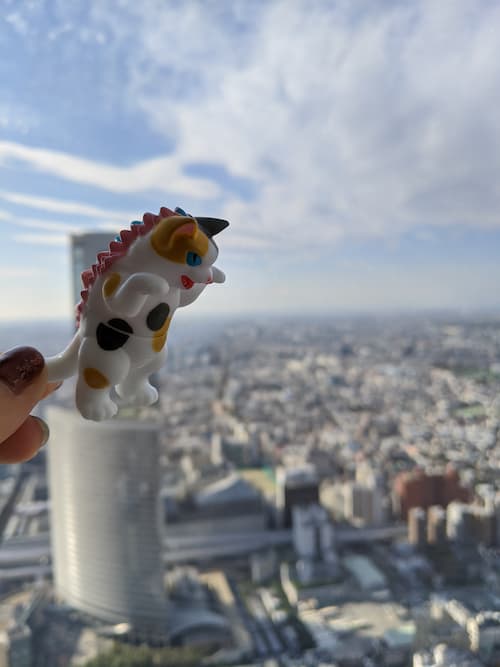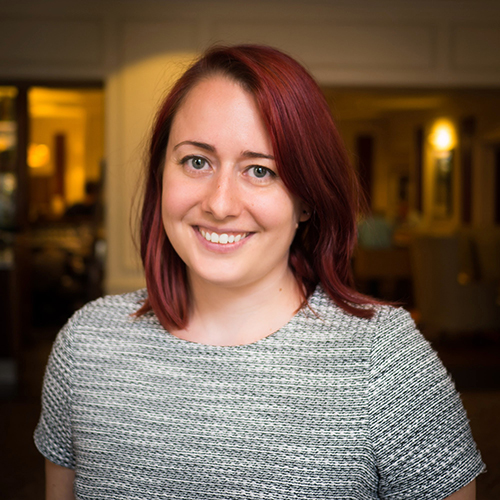Published on Sunday, 25 Sep, 2022
Learning Japanese (part three) 🇯🇵
After a very long, pandemic-tastic gap, I’m back with an update on my Japanese learning adventures.
For those of you following along, I’ve got a part one and part two ready for your reading enjoyment, should you wish to get the full “previously on…” experience. But as a quick summary, I originally started to ‘learn’ Japanese back in 2008 for a trip, then in 2017 many more trips later I started taking it more seriously and essentially started from scratch. Since then I’ve been primarily self-studying, peppered with some classes, and have used the Japanese Language Proficiency Test (aka JLPT, aka 日本語能力試験) to help structure my studies and act as motivation.
This summer I finally passed N3 level
The JLPT is divided into 5 levels, from N5 (“able to understand some basic Japanese”) through to N1 (“able to comprehend at natural speed and read things with logical complexity/abstraction/profound contents” etc).
Back when I first set out to take the exams, N3 was my main goal. I felt like getting to this stage would put me comfortably at a useful intermediate level, as by this point you’re “able to understand Japanese used in everyday situations to a certain degree, comprehend things at near-natural speed, and read slightly difficult writings”. N5 and N4 were by no means easy at the time, but N3 came with a big leap in ground to cover, and I knew that I’d get a lot of satisfaction from passing the exam. Depending on the year, historically the certification rate is around 30-50%.
As you’ll see from my previous post, I was originally intending to give the December 2019 exam a shot (tests are held on the same day globally, maximum twice a year), however after a shitty year of being cooped up at home with TB infected cats, I instead ended up in Japan on the exam date, doing another stint at language school in Tokyo, before driving round the Kyūshū countryside. I could technically have sat the exam over there, but logistics would have been challenging and I wanted to relax and enjoy my time instead of spending my holiday with exam stress! I felt fine about the decision at the time, intending to sit the exam in July 2020 when I’d have been more ready. However, little did I know that very soon after, Covid would hit and the exam would be cancelled.

Whilst Japan and some other countries restarted exams in December 2020, in London it took until this summer. Despite having a baby due and knowing I’d be in newborn life chaos, I didn’t want to miss the chance again. I booked my spot for the July exam, determined to get this long-awaited paperwork under my belt.
Happily, I passed! I’d felt confident yet nervous in the run up, as I was extremely sleep deprived, had incredibly little time to prepare, but also knew that the exam had been a long time coming and that I generally felt very comfortable at that level. Having sat two previous exams I was also very comfortable with the format, and had even come to enjoy the “rearrange the parts” grammar question format I mentioned in my previous post. This all played out in the exam, where I found the vocab/kanji paper a breeze, and surprised myself with how comfortable I found the listening paper. My biggest challenge was actually the reading/grammar paper, where I fell foul of zoning out and poor time management, which surprised me as reading is what I do most of. However it was all absolutely fine, I passed easily, and I came away really proud of myself for being able to finally get it done despite the difficult circumstances.
My studying methods have changed a lot
In my previous post I mentioned my plans for starting at N3 level after passing the last exam:
So far I’ve created a new custom Anki deck, have bought the Grammar, Reading, and Listening 「新完全マスター」 books from Amazon.jp, am working my way through An Integrated Approach to Intermediate Japanese textbook and workbook, and am continuing to use my online tools. I’m also considering another stint at language school later in the year, if I can take the time off.
I worked my way through the textbook pretty religiously, spending lunch times in the Monzo office studying, and then usually grabbing a pot of tea and doing a good chunk of several hours on the weekends. I did also manage to do another stint at Coto Academy language school in Tokyo, as part of an incredibly happy and special time where I stayed in a little flat in Iidabashi on my own. After that though, things changed.
The pandemic threw a lot of stress and uncertainty into life, and 2020 was a really hard year. This in turn impacted my learning, which I mentioned briefly in my end of year summary:
During my time off I did two months of having Japanese classes twice a week, which I loved. I’m keen to work out a way to do this more. I’ve generally kept up my studies pretty well, even though my brain’s struggled at times and routine has flagged at points. With exams being cancelled I’ve had fewer checkpoints, and without trips (my main motivation) in sight it’s been easier to slack. Weekend lessons have been a highlight though. I’ve looked back at how far I’ve come over the year, and as always I’m very proud of myself.
The weekend lessons I mentioned were with Ako先生, who was doing incredibly fun and inclusive group lessons, but who now runs Nihongo Picnic. The classes twice a week were more formal lecture-style sessions with Coto Academy. Outside of that though, I did indeed slack a bit. I didn’t need to push on with my kanji, so let my WaniKani sit in vacation mode a lot. I read a little bit but not much. I’d gathered even more textbooks from my trip to Japan and did spend some time with them, but it was all a little bit unstructured. In 2021 when Ako先生’s lessons came to an end, I procrastinated for a while and had a few false starts before facing the thing I knew I needed to do: getting a tutor and focusing on speaking.
With no real opportunities over here to talk, and no Japan trips to keep my skills and confidence topped up, my speaking was atrophying a ton compared to my other skills. The less confidence I had, the harder I found it to pluck up the confidence to start 1:1 sessions. Thankfully after getting really annoyed about it I managed to find a wonderful teacher to work with; someone who I laugh a lot with and genuinely enjoy chatting to. We now have conversation/reading sessions every week and they’re again a real highlight. It’s because of this that my listening has come on so much, and it definitely helped me to pass that section of the exam so easily.
I picked up my textbooks (along with some practice test papers) in the run up to the exam, but otherwise they had taken a back seat to reading books, articles, and watching native content. My Anki decks also got deleted, as I hadn’t logged in for so long. In general I feel like this was the biggest shift in my studying: I hadn’t formally moved on to N2 materials as I didn’t feel “allowed” without passing N3, so I unintentionally focused more on other kinds of exposure, which actually really helped me.
As a bit of a summary, here’s the range of things that I’ve used at different points studying at this level (although I’ve probably missed some):
Online learning tools
- A custom Anki deck, poorly kept up and now lost as I can’t find the original
- WaniKani - very much slowed down to not get ahead of what I need
- Bunpro - used infrequently for grammar practice
Textbooks
- Grammar, Reading, and Listening 新完全マスター books, probably my most solidly used reference.
- An Integrated Approach to Intermediate Japanese textbook and workbook - used a lot at the start but forgot a lot!
- 新にほんご500問 was a fun way to do little daily quizzes.
- Practice papers like 短期マスター 日本語能力試験ドリル.
- I got some of the 日本語総まとめ series as part of my courses, but I didn’t really use them outside of this.
- I bought a Shadowing 日本語を話そう! book/CD when in Japan but haven’t really used it much.
Lessons
- Two months of online lecture-style Grammar/Kanji/Vocab classes with Coto Academy.
- Attending an in-person intensive course in Tokyo with Coto Academy.
- Regular lessons with an italki teacher has made such a difference (here’s my referral link for italki credit).
Fun stuff!
- Watching Japanese content on Netflix, either with Japanese or English subs depending on the content. I can’t remember if these were all since the last post, but some things I’ve enjoyed include the various Terrace Houses, Aggretsuko, Midnight Diner: Tokyo Stories, Old Enough!, Kantaro The Sweet Tooth Salaryman, Love Is Blind Japan, Rilakkuma and Kaoru (really enjoyed the latest Theme Part Adventure), Followers, and various films like Ghibli ones.
- Reading. Most of my reading has been in my lessons with my tutor where we’ve read over 20 books of varying styles and lengths, but some other books I’ve enjoyed outside of this include コンビニ人間, 君の名は, 54字の物語, 時をかける少女.
- I’ve bought other interesting books like “Jazz up your Japanese with Onomatopoeia” and 雨/風と雲/花のことば辞典
- I occasionally listen to 日本語 with あこ
- I still read/listen to NHK Easy News as little snapshots.
Pushing on…slowly…
Despite N3 being my original goal as a proxy for being able to function well in everyday situations when visiting Japan, Japanese study has been something that I’ve grown to really love. I miss it when I take time away from study, and I also really feel the impact on my recall and confidence when I don’t practice (as when I took a couple of months totally ‘off’ when my kid was first born). I don’t want to stop now, and I don’t think it’ll help my ultimate goal of having more meaningful experiences and interactions in Japan when I return.
That said, my studying time has drastically dropped. I knew life with a baby was going to be tough, but I didn’t quite appreciate just how little time you start to have in a day to eat/sleep/bathe/sterilise things/clean/exercise, let alone prioritise any leisure activities once they start to get a bit more interactive. Despite the critical lack of sleep, I actually really miss the very very early days where I got a lot of gaming done (newborns can sleep up to 18 hours in a day)!
So I’m pushing on. I’ve got new textbooks, I’ve upped my reading level with my tutor (currently reading 47 Ronin) and am continuing weekly lessons, and I’m intending to spend more time consuming native material… when I can. N2 is again a big leap forward, with the suggestion being you need to know around 1000 kanji (350 more than N3), have a vocabulary of roughly 6,000 words (around 2,500 more than N3), and learn around 200 grammar points. I’d like to eventually get to that stage, but given the circumstances I’m not putting any timescales on it, and as long as I maintain where I am and make some gradual progress I’ll be happy with that for now.
Whenever it is, until next time I shall leave you with this excellent content courtesy of the Reddit comment section

Read more from the blog
Back in time:
dConstruct: The final chapter!
Forward in time:
Planning a new chapter...
 Sally Lait
Sally Lait